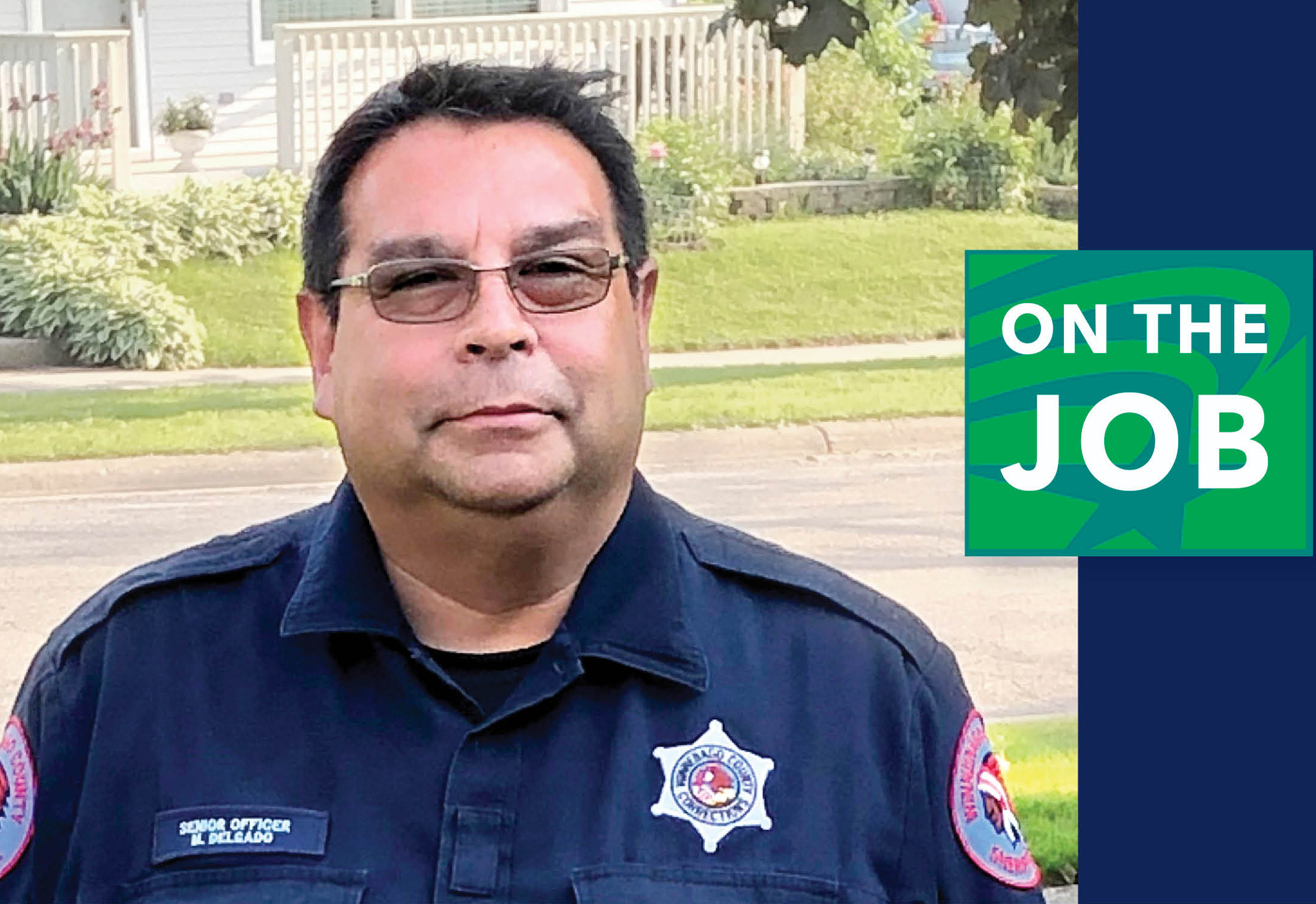On the Job: Michael Delgado at Winnebago County Jail
Michael Delgado is a member of AFSCME Local 473.
 Tell us about your job.
Tell us about your job.
I’ve been a correctional officer for 14 years at the Winnebago County jail in Rockford. It’s a two-tier facility for 800 inmates with a mental health unit, a medical unit and general housing.
Turnover is very high right now because we are extremely understaffed. We’re often one officer for two pods of 64 inmates—that’s more than 120 inmates. You’re dealing with getting inmates to their attorney visits, court, classes, visiting hours, meals and medical services—all while trying to give them time out of their cells.
Working with the mentally ill inmates can be especially challenging. You can’t let your guard down because they’re dangerous, but we treat them as we would want to be treated.
It’s sad. They’re stuck in our system because our state and federal government has shut down what little services and housing programs we had for the mentally ill. If they get out, they often come back because they missed a court date or trespassed on private property because they have nowhere else to go.
What’s your inspiration to go to work every day?
I love my job. My mom was a nurse who took care of the elderly in nursing homes. My dad was a big union person. I actually enjoy going to work. But I don’t enjoy seeing the inmates in there, wasting their lives away—sunny days, months and years passing them by.
I try to talk to them. I tell them, life’s so short. If you think about it, we’re only on this earth for a blink of a moment. If you’re stuck in here, you can’t leave if something goes wrong. You can’t see a sick or dying family member. I tell the gang members: You don’t need that gang. They were there to help you get in trouble, but where are they now?
I also love going in and talking to the other officers, seeing how they’re doing. We have a good team.
How does your job provide a valuable public service?
We allow the public to sleep easy. The majority of our inmates are in for high crimes. We have people in for murder, rape, pedophiles, gun charges.
Sometimes I see former inmates, maybe at the grocery store when I’m out with my wife and kids, and they approach me. They say thank you. They say they remember our talks and they’re holding onto it.
It’s good to hear because hopefully that’s one you can mark that doesn’t come back into the system. They aren’t committing crimes and the taxpayer doesn’t have to pay.
How does the union improve services?
The union has been fighting to get our staffing numbers up. We’ve filed multiple grievances and we sit down with the sheriff and go over the numbers once a month to see where we’re at with hiring. We keep the county accountable.
When the jail opened, we had 203 officers for 800 inmates. Now we’re at 153. That’s not a viable functioning number. The county board just said we can go to 159, but that’s just putting a Band-Aid on the problem.
Why is it important to be AFSCME Strong?
I’ve been the vice president of Local 473 for 12 years. I enjoy doing it. I try to talk to our younger generation. They don’t understand their rights. I tell them, we have a pension, health insurance, seniority—but all that can all be gone in a moment.
Being union helps improve our pay and keeps our health insurance at a level we can afford.
But we’re still underpaid compared to other comparable places, so the union did a 2008 job study. The county said they were broke and couldn’t pay. But an arbitrator ruled that as soon as they hit some budget benchmarks, they must pay us more.
They never did—until the new sheriff realized they were just pushing money around and did have the funding to meet the job study. We all got raises retroactive to 2015 according to the arbitration ruling. We wouldn’t have had that without the union.
What have you learned from your career in public safety?
Never take life for granted. I could be on the other side of that wall. I’m grateful I can go home to my family and kids each day. I thank god that I’m where I’m at today.
I know there’s a purpose in my life. I’m able to communicate to the people who are incarcerated. If they’re having a bad day, I talk to them. I’m not a psychiatrist, but you have to talk to them and hope they can listen and understand. Hope that they can change.
We’re in a tough job. My two biggest hopes are that when they get out, the inmates don’t come back. And that all our officers are safe, that we go home safe at the end of the day to our families.



